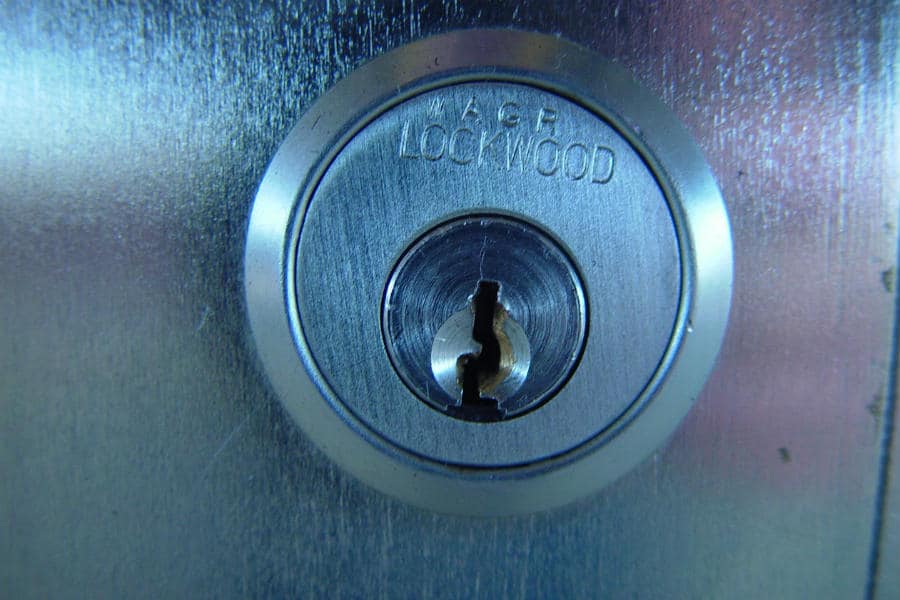Once you’ve made it over the hurdle of actually putting your plans for the end of your life to paper, the next step is to consider where you should store those documents so that they are both accessible and secure.
You have several options. I’ll explore two of them here. You can place these documents in a safety deposit box at your local bank or you can keep them in a small portable safe, preferably one that is both fire and water resistant, at home. What is best for you depends on how worried you are about security and accessibility.
Safety Deposit Boxes
Very Secure
Safety deposit boxes are quite secure. The boxes are stored in banks in heavily secured vaults.
No one is left unattended inside the vault and the box requires two keys to open your box—yours and the bank guard’s. Further, the bank also verifies your signature against the one on your box rental contract before you can view the box’s content.
The vault your safety deposit box is stored in is where the bank keeps its own cash and documents, so you can be pretty certain it’s safe even in a natural disaster. The vaults are generally constructed to withstand explosions, fire, floods and earthquakes.
For absolute security, safety deposit boxes can’t be beat. They do, however, have some disadvantages, particularly if you’re planning on storing estate planning documents in them.
Limited Access
For one, depending on who you have named on the box as an owner, your executor or trustee may not be able to get into the box. Court intervention may be necessary. This could entail additional cost, effort and delay. Therefore, a safety deposit box isn’t the ideal place for your original will, because the executor of your estate won’t be able to access it easily. You might be able to get around this by having the executor sign the bank’s rental contract and jointly rent the box with you.
Another disadvantage of the use of a safety deposit box that you can only get access to it when the bank is open, which might pose a problem in an emergency situation.
Not Insured
Further, according to experts, the items stored in the safety deposit box at your local bank are not insured. People have the misconception that these are insured because they’re at a bank, but that’s incorrect. The FDIC only insures deposit accounts, not the contents of your safety deposit box.
Small Portable Safe
Easy Access
Your other feasible option is to store your documents at home. A small portable safe has quite a few advantages over a safety deposit box—the biggest one being that you can access it any time you like. You just have to make sure that whoever you have as your executor or personal representative knows where your small portable safe is and has the key to it.
Moderately Secure
Chances are that whatever safe you buy won’t be quite as likely to withstand a natural disaster as a bank vault, but if you get a small portable safe, you can take it with you if you need to.
There are three important things to consider if you’re thinking about storing your documents in a small portable safe—fire, theft and flood.
Protecting your documents from flood damage is the easiest of the three to combat. A waterproof small portable safe should do the trick.
Fire’s a little bit harder to protect against. Here’s what you need to know about keeping your small portable safe secure from fire:
- Items that claim to be fire resistant should be graded by Underwriters Laboratories (UL).
- UL’s ratings tell you how long the small portable safe’s interior can remain protected during a fire. Ratings can range from half an hour to four hours. According to experts, a small portable safe that is UL-rated for one half hour should work.
- UL also rates items for the temperature the contents can withstand. Computer discs, video tapes and other audio visual media get damaged at temperatures as low as 125 degrees F. Paper burns at 450 degrees F. You’ll need a UL Class 350 small portable safe to keep your estate planning documents from burning up.
If theft is a concern, you can make your small portable safe not-so-portable by bolting it to a closet shelf or floor, or just go with a floor or wall safe. Generally even a small portable safe isn’t all that attractive to burglars—they can’t see what’s in it to verify if it’s of value, and even if it’s portable it’s not the easiest item in the world to lug around.
Estate Planning Assistance
No matter how you choose to store them, you absolutely need to have estate planning documentation. Whether you need to make an update or haven’t quite gotten around to estate planning, I’m here to help you. Get in touch with me and we can talk about the best way to make your final wishes lasting ones.

